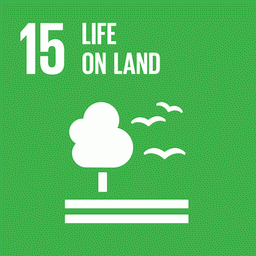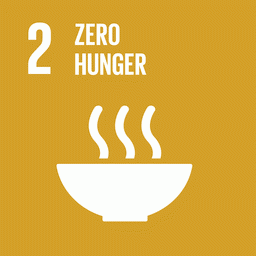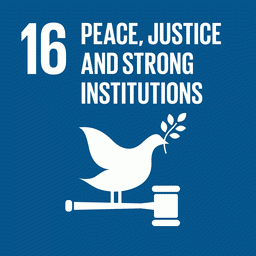Electing representatives at every political level who understand the context of the Amazon and are committed to solutions to end deforestation and guarantee the rights of traditional communities means choosing a future for everyone in Brazil and the world. “The Amazon is complex; the same goes for its protection. We need to analyze it and understand it because what happens there reverberates throughout Brazil and other countries”, explained Ludmila Rattis, a researcher at the IPAM (Amazon Environmental Research Institute) and at the Woodwell Climate Research Center. “It is very difficult to imagine a future if we do not change our attitudes and policies.”
Born in the Cerrado, the scientist worked in the Atlantic forest and has been “living and breathing the Amazon” for six years. In an interview with the Amazoniar team, she shared some experiences in the field and spoke about the consequences of destroying the biome on the climate, food production, and food security. If, on the one hand, understanding the Amazon can be a complex task, for Rattis, “ending deforestation may be easier than we think”. “If we can make Anitta reach the number one spot on Spotify together, we can also put a good government official at the head of this country”, she joked, encouraging a collective action to create better development policies.
Check out Amazoniar’s interview with Rattis:
How was your experience when you arrived at the Amazon for the first time?
I went to take an ecology course in the Amazon rainforest. I got off the plane in Manaus at 2 a.m., and when I left the airport, the lenses of my glasses fogged up with the city’s heat and humidity. I realized I was going to have a lot of problems because I did not wear contact lenses. I have myopia and I was about to live in the middle of the forest for a month without being able to locate myself properly. This is serious during fieldwork in the Amazon. I remember that, on a full moon night, I was on forest solid ground, two hours north of Manaus, and I was trying to find the moon, but I could not find an opening to the sky because the trees were forming a kind of roof. That was the universe in which I was living: a huge, imposing forest, and you got to have a lot of respect for this land. You cannot touch anything without first observing and actually asking permission to enter. The Amazon is an imposing organism that can give many good things, but also take things away from us.
What was the greatest lesson you have learned throughout your trajectory that you would like to share with the world?
The more I work with indigenous people, I realize I have a lot to learn from them. Once, I taught a course in Amapá and had the honor and pleasure of showing some of the tools we have developed, including the Climate Change platform, which identifies climate change in every indigenous land and conservation unit of the entire Pan Amazon. There, I had the opportunity to get closer to indigenous communities and, for me, the more I interacted with them, the more I realized how ignorant I was and how much I needed to hear from them. What we call ecology, for example, a term coined in the 20th century is what they have been calling urihi for thousands of years, referring to their interaction with the land and nature. They also have xapiri, great nature protectors. Indigenous people understood the water and carbon cycle much longer ago. Therefore, I think the great lesson is: no matter how much we study or how many scientific articles we publish, our knowledge is far behind the knowledge of these traditional peoples, indigenous communities, and the people who live there and in the Amazon.
What is your take on what is happening today in the Amazon?
Although the Amazon is being mentioned in several newspapers, I think everyone lacks empathy. I really admire journalists who go there to document what is happening. I know some who cannot enter several Amazon cities because they were threatened due to their writing and denunciations. I think we also need to see the Amazon from a practical perspective. Last year, during the fire season, I visited an area that was being grappled, cleared, and burned, and the sense of impunity was blatant. The destruction of this very important biome that maintains the life of our planet makes me angry. Death reverberates: the fall of one of its trees is reflected thousands of miles away, and nothing is done to prevent it.
The pressure from the population is very important. We need to increase our awareness about these problems on the ground, making the land grabber accountable for that area that is being deforested. I spent only two days in the city and I already knew who the squatter was, so the authorities knew it as well. If this squatter is taken out, ten more will appear. Sometimes, it is not a matter of authority inaction, but the danger of the place. For many years now, Brazil has been the country with the greatest number of socio-environmental activists deaths in the world. That is not new. It has been happening for a long time. I think ending deforestation is much easier than we think. It depends on far fewer things than we imagine. Above all, I think the government lacks the will to do it and tolerates the crime.
In your opinion, how engaging the youth and the population can help reverse the biome’s destruction?
Before social media, I remember people were criticized a lot for writing huge posts. Nowadays, a hashtag going viral helps a lot to bring down bills and change the course of an election. As we can see in Brazil and in several other countries around the world, social media changed the outcome of elections. This activism has to be very down-to-earth. It is important to read and visit the Amazon if you can. One of the best pieces of advice I have got is that if life offers you cilantro, eat the cilantro: go to the Amazon, live the Amazon, and try the things it offers. But, if you cannot do it, there are other ways to understand the Amazon and be part of this down-to-earth, well-informed activism: reading the pieces of great authors who write about the territory, such as Eliane Brum, Fabiano Masonali, and Daniel Munduruku. There is so much information available! Read and talk to scientists who work there to write more accurately. Sometimes, people write wrong things that get in the way instead of helping. So be careful.
Could you explain the relationship between agribusiness, food production, climate change, and the Amazon?
Deforestation in the Amazon occurs in different territorial classes. Public lands are not deforested for food production: we are talking about deforestation for real estate speculation and land taken by people who want to make money at the expense of the forest. These people do not care about the fact that, by cutting down a tree, the atmosphere fails to get 300 liters of water a day, heating the planet, or that for every 10% of deforestation, the temperature increases 0.5°C.
There is also the production of commodities, on which Brazil depends: 6% of the Brazilian GDP depends directly on agribusiness. If we consider the agribusiness trade, this number rises to 22% or 23% of the GDP. It is related to the production and trade of commodities, such as beef, soy, corn and cotton. Brazil is currently the greatest soybean producer in the world, followed by the United States. If the region of Matopiba, Goiás, and Mato Grosso were a country, it would be the third top producer in the world, and Brazil would still be the top second, even without this area. The production of these commodities implies deforestation, mainly in the Cerrado. The Soy Moratorium was implemented in the Amazon, which theoretically does not allow the purchase of soybeans from areas deforested after 2008. However, if the soybean trading continues to increase in the Cerrado, there is also an opening for pasture.
Small properties are also deforested to actually grow food. What we need now is to invest in technical assistance and investments for agricultural inputs to improve the species of grass planted in pastures, and diversify the chain… a property under 100,000 hectares of livestock in the Amazon is not sustainable from the economic, social or environmental point of view. While analyzing deforestation, it is important to break it down into territorial classes.
Conservation units and indigenous lands also have to deal with deforestation and mining, which are acts of “banditry.” Nonetheless, the most important thing to do is not just looking at the person who enters these territories, but also who is behind all of it. Once, I was on an expedition in the Amazon and the Fire Department vehicle was shot twice. After some investigation, they found out that the shooter was a person living in a tent, in the middle of the forest, with nothing… You have to chase the person who paid the shooter. After all, they often do this because they have no other way out or no other opportunity. They pay people who choose to destroy and jeopardize the future of humanity for the sake of profit.
Who is affected by deforestation?
Deforestation affects the whole country. Something I always do to prepare for the elections is to read every candidate’s government plan. I remember that, in the last presidential election, I found out that it was rare for a candidate to actually understand the Amazon’s problems, and propose solutions for them. People must analyze these government programs and question the candidates to find out what they actually intend to do for the Amazon. I breathe the Amazon. I have been working in and for the Amazon for six years, so I am familiar with the problems and the solutions proposed, but I am still appalled by the candidates’ ignorance and disinterest.
The Amazon is complex; the same goes to its protection. We need to analyze and understand it because what happens there reverberates throughout Brazil and in other countries. The rain made in the Amazon falls in Texas, the United States, and even in Uruguay. So, it is of interest not only to Brazilian voters but to the voters of the Americas as a whole. We live in a globalized world. Therefore, one country depends on the production of another. It is a global issue. If the amount of carbon stored in the Amazon is emitted, the world will suffer, and the rise of the ocean levels can make whole countries disappear.
In your opinion, as a scientist, if we do not make any changes in our policies now, what could we expect in the future?
Last year, we published a scientific article showing the climatic feasibility of agricultural areas in the Midwest and Matopiba, a region encompassing Mato Grosso, Tocantins, Maranhão, Piauí, and Bahia. According to the most pessimistic scenario of the IPCC [UN Intergovernmental Panel on Climate Change], 100% of this region will be climatically unviable for agriculture. We either reinvent agriculture or we will not be able to grow anything else. This scenario, classified by the IPCC as pessimistic, shows a concentration of greenhouse gas in the atmosphere very similar to the trajectory we are following today. Therefore, it is very difficult to imagine the future if we do not change our attitudes and policies regarding water distribution and use and deforestation.
The Brazilian Forest Code, which protects native vegetation, is one of the strongest forest codes in the world, and that is not surprising: we have most of the largest tropical forests in the world. From time to time, people call me to debate about legal and illegal deforestation. The issue is not legal or illegal deforestation: the climate cannot withstand cutting another tree. A producer may even have the right to deforest to produce in his/her area. Nevertheless, he/she needs to be aware that his/her crop’s productivity and that of his/her neighbors’ will depend on the native vegetation that works as an air conditioner. Trees store carbon, preventing the worsening of global warming and mitigating extreme weather events. For every 10% of deforestation, the temperature increases 0.5°C. Do you want to increase your property’s temperature in 2 or 4°C as the world is on fire or make your land more resilient? That is what we need to discuss: governance at the national, regional, and individual property levels.
What would you like to say to the young people in Brazil and around the world before the elections?
If we can make Anitta reach the number one spot on Spotify together, we can also put a good government official at the head of this country. We need someone who is aware of Amazon’s problems and is committed to solutions and land governance. I am not talking about one or two candidates. I am talking about writing a chapter about the Amazon in the government’s plans. We are heading into a very tricky situation.
Once, I was walking down the street and I saw one of those Friday children’s protests, where they make an appeal to the authorities to do something concrete to deal with climate change. A girl walked to me with a sign that said “You are going to die of old age. I am going to die because of the weather.” That was very heavy and realistic. But we have to believe in our power—and we have a lot of power! —to demand people to think on solutions. I think it is very nice when people who are not scientists propose solutions for Amazon because, sometimes, they see the situation from another angle. So, let us talk and work together: political and ideological intolerance leads nowhere. When there is drought, water crisis, high electricity bills when the sun is shining, or torrential rain… that is everyone’s problem. We need to act more like the single organism we are.
What would you like to say to the person that will become the next President of the country?
Can you act with a little more responsibility and think more in the long term? Think beyond your four-year term. Take a stand for a lifetime, whether you are re-elected or not. Think of the people, of its existence. I am going to tell you a story that moves me a lot: in one of my field expeditions, we arrived in an area that was on fire, including a 30-meter tree. We had to record some technical videos to talk about what was happening there, but I started crying and did not manage to record anything. The only video I managed to make was one where I was about to collapse. It looked like I was about to cry at any moment. And it was so bad that it even was not released. Destruction for destruction’s sake moves me, and I hope it continues to do so, because I do not want to get used to an Amazon that is continuously destroyed. Why do these politicians get used to a destroyed the Amazon? How can they sleep? I would tell them to read Eduardo Galeano, especially when he says: “These f*** who are dedicated to torment humanity live very long lives. They never die because they do not have a rare gland called conscience.” If not for the population, do it for your family, because what happens in the Amazon has always affected and will continue to affect us all.
About Amazoniar
Amazoniar is an initiative of the IPAM (Amazon Environmental Research Institute) to promote a global dialogue about Amazon and its importance for Brazil’s relationships with the world. In its fourth cycle, Amazoniar will promote a series of interviews with some young Brazilians and foreigners who inspire the mobilization for climate justice, especially in the Amazon. In June, these interviews will be published every week, in full, on the IPAM website. Sign up for the newsletter to receive the next interviews!


